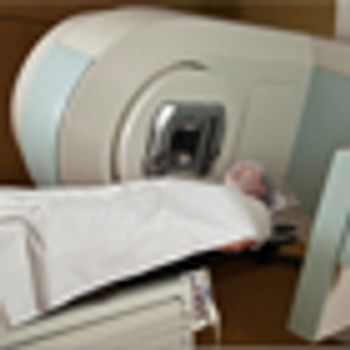
Integrating palliative care earlier in the disease process can improve quality of life and possibly survival for patients with advanced cancer but its value is widely misunderstood, according to a recent review by palliative care experts.

Your AI-Trained Oncology Knowledge Connection!


Integrating palliative care earlier in the disease process can improve quality of life and possibly survival for patients with advanced cancer but its value is widely misunderstood, according to a recent review by palliative care experts.

Expressive writing is a brief and simple intervention that a recent study showed helped to reduce cancer-related symptoms and improved physical functioning in patients with renal cell carcinoma.

Cancer patients can expect to suffer pain, particularly in the advanced stages of the disease. Optimal pain control is an essential part of cancer management from the time of diagnosis, as pain can interfere with cancer therapy, limits patient function, and negatively impacts quality of life.

Why do doctors have such a hard time embracing hospice care and using it to benefit patients, particularly oncology patients? Referring a patient to a hospice program starts a sophisticated plan of care wholly directed at patient comfort, education of the family and grief counseling for the family.

Palliation is a laudable concept and an important goal in the therapy of all patients with malignant disease. Unfortunately, in the current day and age, the adjective “palliative” is being used in a derogatory manner that suggests palliation of suffering somehow lessens the importance or impact that such a therapy has upon individuals with the disease.

Use of the bisphosphonate pamidronate (Aredia) may be “more efficient” than standard regimens as palliative treatment for symptoms of acute symptomatic osteonecrosis in pediatric patients with acute lymphoblastic leukemia.

Palliative radiotherapy is an effective means of alleviating pain and improving overall quality of life in elderly patients with bone metastases, according to a new study.

Optimal supportive care for patients with pancreatic cancer is essential. Putting these interventions into practice requires that oncologists and oncology teams incorporate innovations at both the individual and the system level.

FDA approval of palliative chemotherapy is largely based on disease-free and overall survival, quality of life, and symptom reduction; the latter should be routinely measured by the treating oncologist. Physician assessments of symptoms underreport symptom severity compared to patient-reported symptom assessments.

Integrating palliative care from the time of diagnosis can support both patients and families through difficult periods and prepare them for the journey ahead. It can improve quality of life while curtailing healthcare spending and increasing satisfaction with oncology care.

The body of research addressing the palliative care−oncology collaboration continues to accumulate; however, sustained efforts are needed to ensure that we are providing the best possible care for our patients.

In this article, we present or review the evidence for providing palliative care concurrently with oncologic care, guideline-based recommendations for screening and incorporation of palliative care, and a case-based discussion to demonstrate palliative care across the continuum of cancer care.

To insure standardization of all aspects of care during the conduct of a clinical trial, clinical trials should include guideline-based criteria for the management of all symptoms of cancer and its treatment, and failure to adhere to any of the standards for symptom management during the conduct of the trial should result in an equal level of protocol violation.

An updated assessment of 56 international randomized studies has established exercise as a way to ease fatigue linked to cancer and cancer treatment, reinforcing results of a previous review of 28 studies published in 2008.

In this podcast we discuss integrating palliative care into standard oncology care with Thomas J. Smith, director of palliative medicine at Sidney Kimmel Comprehensive Cancer Center.

A significant portion of patients with incurable lung cancer believe that palliative radiation therapy will cure the disease or at least help them live longer, according to a new study. Only about one-third of patients acknowledged that the treatment was not at all likely to cure their cancer.

I have come to the conclusion that a successful systematic approach to earlier transitions from disease-directed cancer therapy to end-of-life and palliative care can only come from better communication in the context of more trusting relationships.

The FDA has approved tbo-filgrastim, a drug that reduces the time that cancer patients with non-myeloid malignancies experience severe chemo-related neutropenia.

Clinical hypnosis has been defined as a mind-body therapy that involves a deeply relaxed state, individualized mental imagery, and therapeutic suggestion.

The FDA has approved a new strategy to evaluate the risk and safety of both extended-release and long-acting opioid analgesic, called a Risk Evaluation and Mitigation Strategy (REMS). The drug class are synthetic versions of opium, that have had a long history of regulated control to mitigate their abuse and illegal distribution.

A web-based interactive support system tailored for cancer patients reduced patients’ feelings of depression and improved their sense of well being, compared with being given access to resources that are publically available on the internet, results of a large 1-year randomized controlled trial have shown.

This article addresses the practical application of palliative care (PC) in the outpatient oncology setting.

In their article, Dr. Jamie Von Roenn and Dr. Jennifer Temel demonstrate the value of enhanced symptomatic and palliative care for symptom reduction, improvement in quality of life, and, in some instances, better survival.

There has been much progress in our “war on cancer,” launched with President Nixon’s signing of the National Cancer Act in 1971. In 2011, however, it is estimated that more than 571,000 people will die from cancer.

n their article, Dennis et al call for timely integration of palliative care into standard oncology care and sustained collaboration between these two specialties, to provide comprehensive, individualized care for patients with advanced, incurable cancer and their families.[

Doctors von Gunten, Lutz, and Ferris accurately point out some of the reasons for the tragic underutilization of hospice care and ways oncologists might address this issue.

First, I need to reiterate what Dr. Alesi and her coauthors have so clearly stated: that there is a paucity of published data on most aspects of the delivery of palliative care (PC) services in the outpatient setting, although this now appears to be changing.

The demand for early palliative care (PC) involvement has never been greater in the setting of capitated healthcare delivery systems. The review by Alesi et al is timely in that it illustrates innovative practice partnerships with oncology groups during a time when PC is being thrust into mainstream outpatient care.[1]

The review by Alesi et al attempts to answer an important question in real clinical practice: Is it better to refer patients directly to hospice when aggressive treatments have stopped working or rather to integrate palliative care (PC) earlier in the course of a patient’s disease?

As Dennis et al demonstrate, palliative care (PC) is a unique and multifaceted philosophy of care geared towards patients living with serious illness, not only those dying from it.